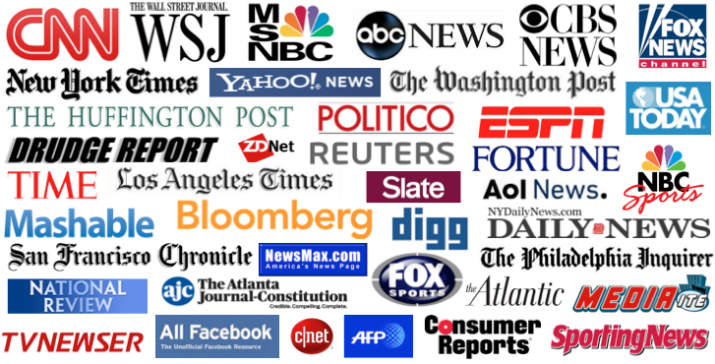The Good, The Bad, and The Biased
What causes partisan news, and what are its potential effects?
December 7, 2018
An AllSides.com search for the term “immigration” brings up a multitude of articles on the topic, especially focused on the event on Sunday, Nov 25, when migrants travelling towards the United States rushed the border at San Ysidro. The first headline – “The US has made migrants at the border wait months to apply for asylum. Now the dam is breaking,” is an article from Vox, and is marked with a dark blue “L,” so that readers know of the article’s strong leftist bias. “The Memo: Trump’s immigration hawks grapple with new court blow,” from news site The Hill, carries a purple “C” marking to denote its centrism, likely a title earned because of the balance of conservative and liberal quotes in the article. A third, from Fox News, “Hundreds of migrants try rushing toward California port of entry, as Trump threatens to close entire border,” is stamped with a light red “R” for its right-wing bias.
Biased news floods our Internet, and reports of biased news are even more prominent. Not only that, but claims of outright fake news circle from every direction. Most often, news bias is borne of its selectivity and its lens. The New York Times describes a test done in which a newspaper can be evaluated by the phrases its writers choose to use in its article “Media Slant: A Question of Cause and Effect.”
The article discusses the discovery that the most likely determinant of a newspaper’s bias is the community to which it delivers news. If a paper sets up shop in a conservative area, it is more likely to have conservative-biased news, and once a news source becomes accustomed to its niche community, its bias will not change. Over a period of time, this solidifies the one-sided tendencies of the community by giving only one viewpoint. The reasoning behind this is simple: media is a business, and businesses exist not to provide a service, but to make money. So newspapers and other forms of media give consumers what they want to hear and read, no matter the consequences.
But what does this mean for our democracy? And what happens when making a profit turns into outright ‘fake news’?
The best way to make a profit online is to get hits, and the best way to accomplish that is controversial, attention-grabbing headlines and photographs. So when “stretching the truth” or outright lying becomes more profitable than actual facts, the public on which our political system depends believes information that is partisan and potentially untrue. Without an informed public, the nation risks electing officials who use only emotional or dishonest appeals because of the coverage garnered by press coverage of emotional or outrageous stories. For this reason, factual and impartial reporting is what upholds American society.
Historically, biased press has incited change in American society. The idea of the Revolutionary War gained traction through pamphlets like Common Sense, yellow journalism influenced the American public to support the war with Spain, and political muckraking consistently influences election outcomes. The power of the press is so great that some claim it functions as a fourth branch of government.
And our news outlets know it. Every major source of news in America promises factual, trustworthy reporting and loyalty to the United States. USA Today uses the slogan “The Nation’s Newspaper,” The New York Times’s original and still used slogan “All The News That’s Fit to Print” was meant to claim impartiality. Although Fox News no longer claims to be “Fair and Balanced,” they do tag themselves as “Most Watched, Most Trusted,” a tagline that CNN echoes when they call themselves “The Most Trusted Name in News.” But perhaps the most truthful, fitting, and ominous tagline of all belongs to the Washington Post, who offers the reminder that “Democracy Dies in Darkness.”
In the end, it is up to consumers of media to seek out news that tells them facts and challenges them to open their minds to new ideas. Remember that despite a longstanding tradition of American news outlets stretching the truth in order to make a profit, honesty, dignity, and intelligent reporting conquer fear and lies.


